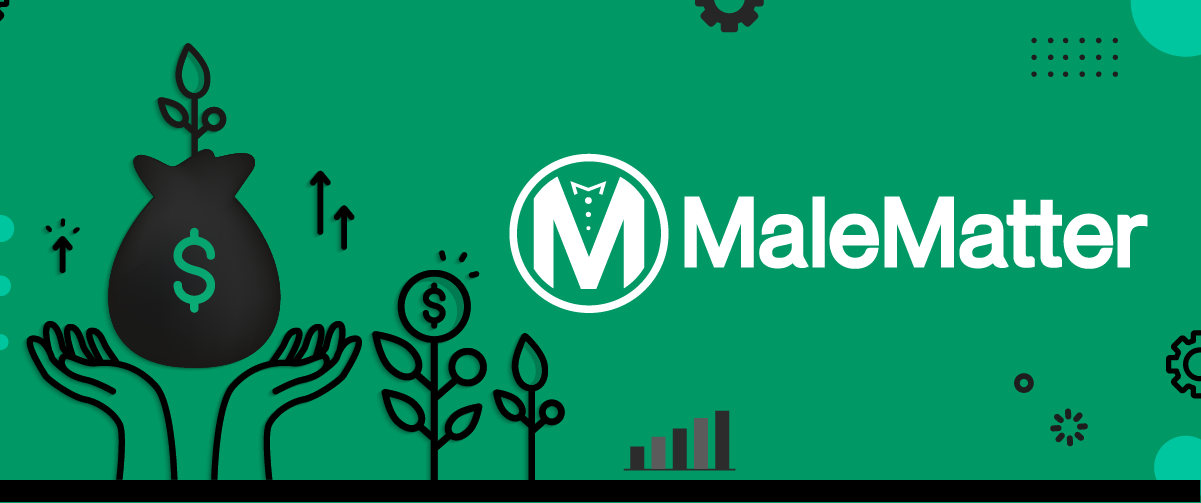Like many people, you want to live a good life. You want to be able to afford your basic needs and have enough money to afford some luxuries. You also want to have some money to spend when you are older and unable to work. Your best shot at living a comfortable life is to become reasonably wealthy.
If you want to be wealthy, then earning money isn’t enough. You need to grow your money. To do that, you need to invest. In this article, we will show you why you should invest, and how to invest properly.
Why You Should Invest
There are many reasons why you should invest. We will highlight four reasons here:
- Financial freedom. It may seem counterintuitive but investing your money gives you financial freedom. The more money you invest now, the more money you have to spend in the future.
- Easy way to earn more income. To earn money from your job, you need to show up at work and put in the effort. The money you earn from any job is called “active income.” To earn money from your investments, you simply have to create an investment portfolio and watch your money grow on its own. The money you earn from an investment is called “passive income.”
- Peace of mind. Those who have investments are less likely to be stressed when things go wrong for them. This is because they have something to fall back on. On the other hand, those without investment are prone to stress and panic when financial disasters happen to them.
- Financial prudence. When you begin to think like an investor, you will begin to devote your resources to things that bring the highest rewards. This mindset will make you a great financial planner over time.
The Best Time to Start is Now!
A lot of people know they have to invest their money at some point. That is the problem—”at some point.” There is no need to put this matter on the back burner. The best time to invest is now.
Chances are you are swamped with expenses at the moment. You may be expecting a child, or struggling with your student debt, or behind on your mortgage payment. Surely, now is not the best time to invest, right? Well, it is.
Investing is more than simply putting some money away. It is a mindset that involves careful planning and discipline. If you want to take care of that baby or pay off your student debt or meet up on your mortgage payment, you need investments. That is why you should invest now. It doesn’t matter how little you start with. Just start!
Why You Should Invest and How to Get Started
If you are reading this, you probably do not have a lot of money to spare right now. You’re just starting out and that is completely fine. There are plenty of investment opportunities that require as little as $5 a month. Surely, you can spare $5 a month.
If you are unsure of where to start from, check out Betterment. It is perfect for those who can only afford to save a small portion of their income per month. The fee on the account is meager, unlike other platforms that eat heavily into your interest.
If you have more than $5, you can check out the following opportunities
- Stocks and bonds
- Real estate
- Retirement plans

What Makes Investments so Powerful? Compound Interest
Investments allow your money to grow through compound interest. The key here is consistency. Check out these scenarios
- Scenario one: Imagine you start investing when you are 20. You get a $5,000 windfall, and you decide to put it in an account with a 7% interest rate. You also contribute $200 monthly to the account. By the time you are 35, you will have over $284,000 in your account.
- Scenario two: Let’s assume you are 22 and just starting your career, so you can only afford to spare $50 a month. You put the monthly $50 into a 401k account with a 50% company match. If you increase your contribution at the same rate as your pay raises, you will be a millionaire by the time you are 65. (We calculated this using an annual raise of 3.5% and an 8.5% return on 401(k) investments.)
Ways to Invest
There are several investment opportunities available. We are going to examine a few.
Mutual funds: A mutual fund is a pool of investments from different investors that is professionally managed as a single investment. The fund manager invests in a broad portfolio of stocks, bonds, and other securities. It’s a safe and inexpensive way to invest.
Bonds: Bonds are debt securities that are used to fund local projects and new companies. Even the U.S. government relies on bonds to finance its budget. There are different kinds of bonds: corporate, municipal, or treasury. While no investment is strictly risk-free, the government’s treasury bonds are the safest of all investments.
Stocks: You can buy individual stocks or invest in a mutual fund that buys stocks. If you choose to do it on your own, ensure you have enough information. The stock markets are a rewarding place if you have the right information.
Real estate: Real estate is a long-term investment. You make money from renting the property either on a weekly or monthly basis. It is a superb investment as rents are sure to go up over time. That said, it is crucial to know the risks and other regulations in your area. If you don’t want to go into real estate full time, you can get started with Airbnb. It is a fun way to test real estate with minimal risks.
Retirement accounts: A Registered Retirement Savings Plan (RRSP) is a good idea for people who want to save for their retirement. It’s also the most common retirement savings account in Canada. The downside to this account and any retirement-focused plan is that there is a limit to how much you can save per year and when you can access your investment. Typically, once you reach retirement age (most often 65), the funds become available to you. Before this age, you cannot retrieve your investments without a penalty. There are also different types of retirement plans available, including Employer Pension Plans, Old Age Security Pension (OAS), and, of course, the Canadian Pension Plan (CPP). Meet with your financial advisor for the best idea on how to get started.
Final words
While some people are still asking why you should invest, others take the first steps toward financial freedom. The keep here is consistency. Keep at it, and the returns would surprise you.


